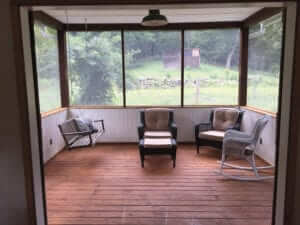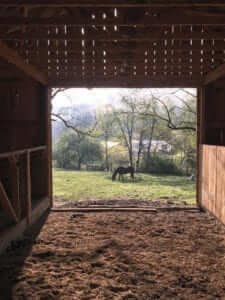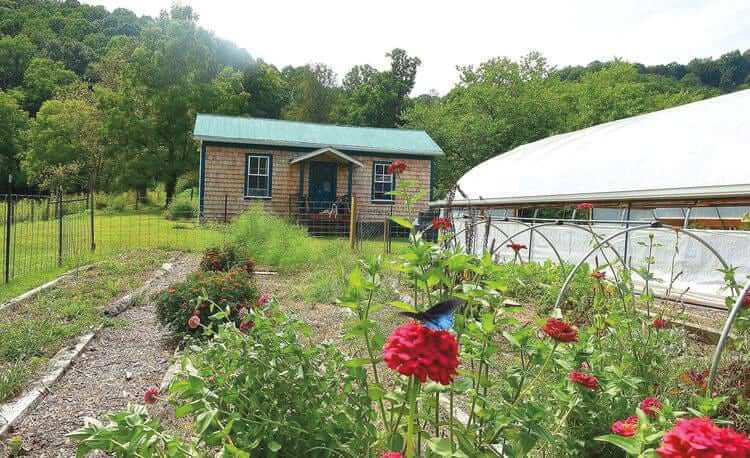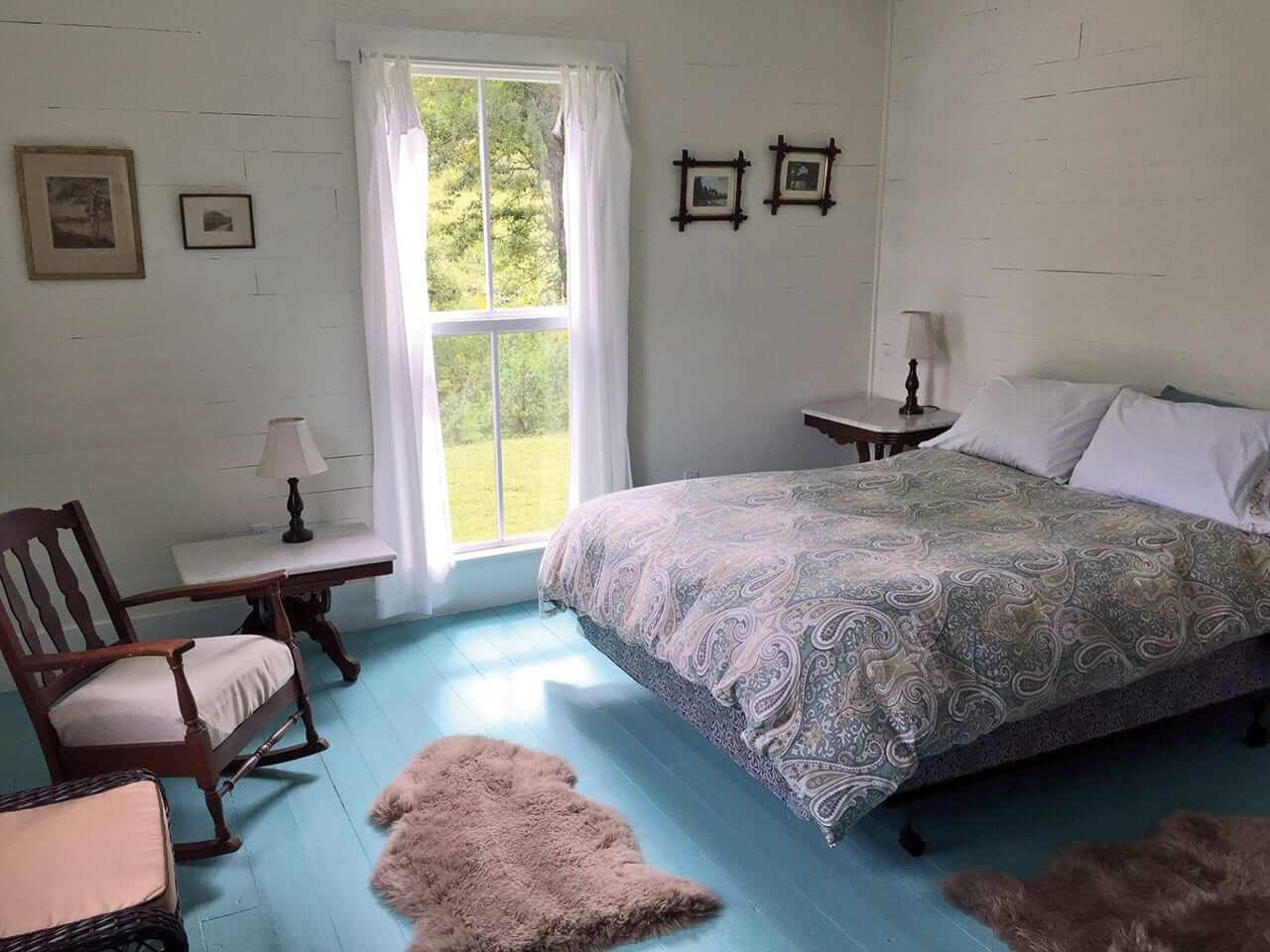A landscape architect offers guests a peaceful respite in the New River Gorge.
With the popularity of space-sharing apps like Airbnb on the rise, travelers have seemingly endless accommodations options at their fingertips. But one southern West Virginia rental, just minutes from the stunning views of the New River Gorge, is setting itself apart by offering guests scenic surroundings, a sense of calm, and all the freshly laid eggs they can carry.
“Guests can sit on my back porch while being surrounded by a pasture full of cows, horses, and deer,” says Pam Bailey, owner of Five Springs Farm, a 171-acre farm property in Fayetteville. “A lot of families come and bring their kids, and I always ask if they want to go with me to the barn when I feed my animals or go out to the chicken house with me and collect some eggs.”
Visitors are also likely to catch a glimpse of Bailey’s two great Pyrenees, Casey and Cora, herding sheep, or hear the honks of the flock of geese that roams the working farm. While Five Springs is equipped with internet access, Bailey says much of the appeal of her farm is that it provides a chance to unwind and disconnect. Between trips to nearby attractions offering hiking, whitewater rafting, and rock climbing, visitors can catch their breath in the fully restored 1800s guesthouse and gaze on the mountains that surround the property.
Bailey purchased the property in 1992, just one year after her job with the National Park Service brought her from Massachusetts to the New River Gorge as a landscape architect. Although she left West Virginia to pursue opportunities elsewhere—including a stop with the U.S. Army Engineer Research and Development Center in Vicksburg, Mississippi—Bailey was so smitten with the Mountain State’s rolling hills that she knew she would one day return to live on the property full-time. “I couldn’t wait to get back to West Virginia,” she says.
Two and a half years ago, Bailey found her way back, and she now devotes all of her energy to tending her farm and maintaining her guest house. “I feel very fortunate to live here. I love the landscape and the rich botanical resources in the Appalachian Mountains,” says Bailey, who holds degrees in landscape architecture, botany, and pollination ecology from the University of Massachusetts, Marshall University, and the University of Guelph in Ontario, Canada, respectively. “I have been trained in design and scientific principles and I try to apply these concepts to my farm and life in general.”
A high tunnel, used for early spring production of flowers, vegetables, and herbs, runs between the farm’s main house and the guest house. Beautifully landscaped flower gardens create a pleasing aesthetic throughout the property, while the vegetable and herb gardens produce the tomatoes, arugula, kale, and lavender that Bailey sells at the local farmers’ market on Saturday mornings.
“The integration of what we eat, how our food is raised, and how we think about the land, its resources, and the impact on our culture is why I do what I do,” she says. “I practice this integration every day and am creating a sustainable farm based in a reverence for the land and its resources by growing wholesome food and providing a farm stay to share this way of life with others.”
Caring for the farm is no small endeavor, but Bailey is up to the task. “I simply retired from one job that paid for my farm, and now I get to farm it. It challenges me and it forces me to keep learning and to work until I’m really tired. My goal is to be a positive force, have a good impact on the world, and to do something greater than myself, so I’ve got to get out there and do it everyday.”
And she’s happy to share that positivity with travelers who come to stay on her farm.
“When I have guests who love staying here, it makes me feel like I’ve done a good job,” Bailey says. “Bringing that old structure back to life, coupled with the development of a working farmstead, is gratifying. It is a living historic and cultural landscape.”
featured image by Brad Rice

















Leave a Reply